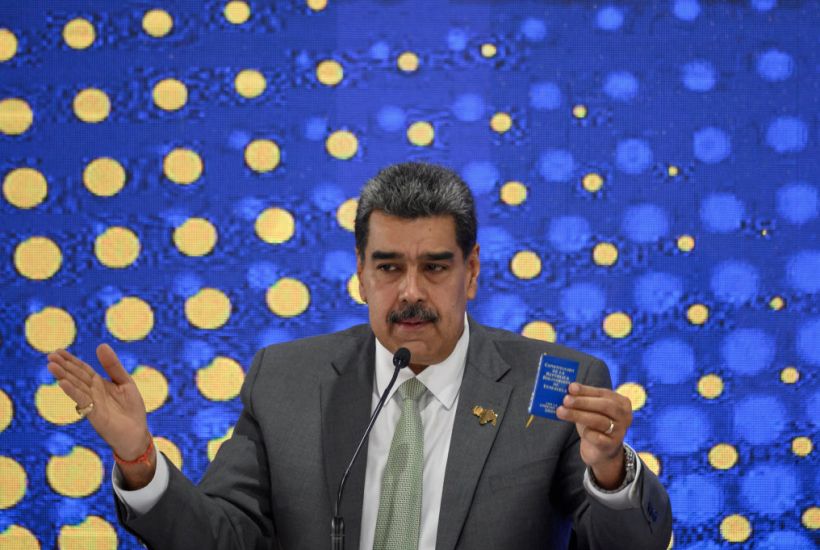On Monday, the Stop the War Coalition (StWC), the environmentalist group Just Stop Oil (JSO), the Socialist Campaign Group (SCG), which is a group of ‘Corbynite’ MPs, and Jeremy Corbyn’s Peace and Justice Project, held a joint press conference. With differences in emphasis, they all strongly condemned the moves of Venezuela’s dictator-president Nicolas Maduro to annex the Essequibo region of neighbouring Guyana.
Already a subscriber? Log in
Subscribe for just $2 a week
Try a month of The Spectator Australia absolutely free and without commitment. Not only that but – if you choose to continue – you’ll pay just $2 a week for your first year.
- Unlimited access to spectator.com.au and app
- The weekly edition on the Spectator Australia app
- Spectator podcasts and newsletters
- Full access to spectator.co.uk
Or




















Comments
Don't miss out
Join the conversation with other Spectator Australia readers. Subscribe to leave a comment.
SUBSCRIBEAlready a subscriber? Log in